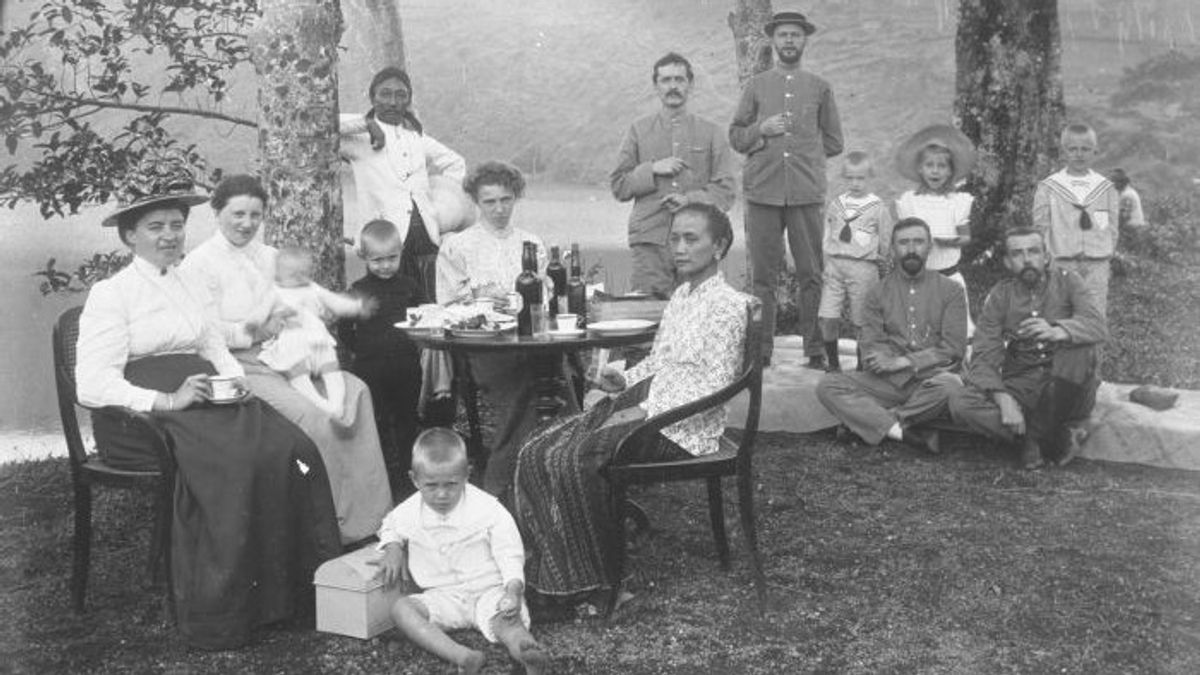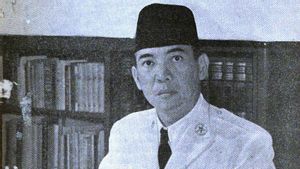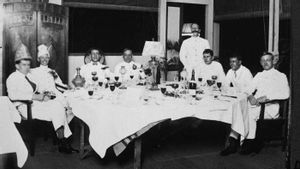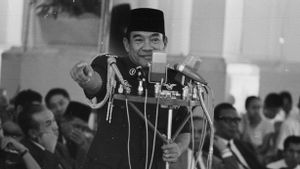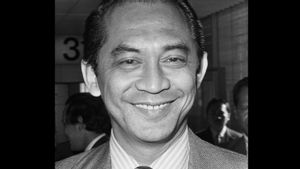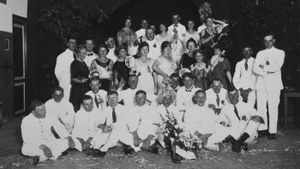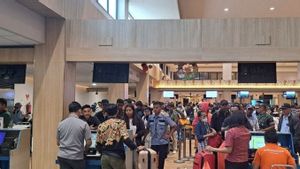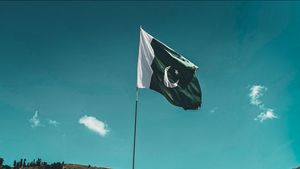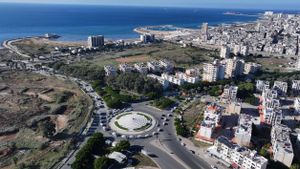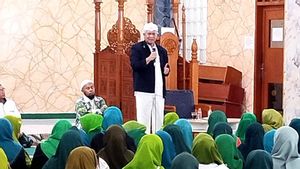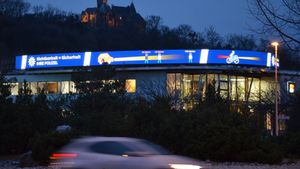JAKARTA - The history of liquor (alcohol) in the country is full of dynamics. Since the Dutch era, alcohol has been present, both legal and illegal. The Chinese and the Dutch became actors who perpetuated the habit of drinking alcohol. The native people are the opposite. The spread of Islamic teachings widens the perception of alcohol as a matter of harm, rather than benefit.
More than that, alcohol is often associated with the "black world." Alcohol is often a complement to other sins, such as gambling and prostitution. As a result, the rejection of alcohol once echoed throughout Java. The habit of drinking alcohol among the native people had existed long before the Dutch colonized Indonesia. At that time, the habit of drinking alcohol was only done for big events, not an open habit.
The habit of drinking alcohol then became part of the life habits of the priayi and pangreh praja (Dutch government officials). Alcohol for them is a medium to express happiness and is believed to be medicine. For more details regarding alcohol as a medicine, we have reviewed it in the article "Drink Batavian Arak or Die: When Alcoholic Drinks Ward Off Disease in the Dutch Age".

One side of religion forbids. On the other hand, alcohol is a legitimate matter when it comes to many major celebrations. Alcohol is a banquet when celebrating the regent's birthday party, a party to welcome the big harvest and a party for the opening of a sugar factory. However, this habit is still considered to be arousing a lot. From harming yourself to harming many people.
"Mudarat or the damage caused (by alcohol) is much greater. Drunk people can cause forgetfulness of wives and children. Causing harm to other people around him. Even the health!" wrote Achmad Chodjim in the book Sunan Kalijaga (2013).
"During the Sunan (Kalijaga) period, liquor may only come from traditional liquor such as Old Javanese tuak (twak). This drink was obtained from the fermentation of the flower water of the tal, or palm tree. a means to get drunk. After they come (foreigners), beer is introduced instead of tuak. "

However, still, within moral limits, the Javanese believe that there are five moral prohibitions called "Ma-Lima" or madat (smoking opium), madon (adultery), mabuk (drunk), main (gambling), and maling (thieve). Staying away from this prohibition is believed to make a Javanese life far from being destroyed. The same applies to the King of Java. In ancient Javanese literature, it is stated that the drunken king and his unworthy attitude towards the people are considered signs of pralaya, a time of destruction.
"That drunkenness was also considered a sign of pralaya during the Mataram II period was confirmed by Serat Rama. A king who indulges in his uncontrolled harshness and anger, because he wants to be feared and obeyed, is also cursed," wrote Soemarsaid Moertono in the book Negara dan Kekuasaan di Jawa Abad XVI-XIX (2017).
"Such a king is equal to a goat attacking every piece of wood placed in front of him. Surely such behavior expresses uncontrollable emotions which for the Javanese is extremely inappropriate behavior."
Alcohol unsettles the native people
Along with the increased arak distilleries in various places, especially in Batavia, the anxiety of the native people about alcohol was increasing. The attitude of rejecting alcohol was then instigated by various social-political organizations of the Bumiputra. Islamic Association (SI) is one of them.
Kasijanto, in his journal, Industri Rumah Tangga di Sekitar Pabrik: Penyulingan Arak di Beberapa Kota di Jawa sekitar 1870-1925 (1993) revealed that SI had even included the problem of alcohol rejection in their 1917 congress agenda.
The social organization based on Islam called on the Dutch East Indies government to enact a rule that prohibits "country children" from consuming alcohol. If possible, "all nations" so as not to be harmed by alcohol.
[/ read_more]
In the eight points of the work program revealed by SI, the eighth point explained, SI demanded the Dutch colonial government to strictly prohibit the spread of liquor, opium, gambling, prostitution and the use of child labor. In addition, SI also demands the issuance of labor regulations that protect the interests of workers and increase the number of free clinical clinics.
"In that room too, Mr. Tjokro understands that there has been a blurring of the meaning of fertility so that in the end when Dutch Liberal culture entered, 'Javanese' manners were lost, especially with the release of 3C-Dab, Kiss, and Ciu (Liquor) causing Tayub/Tandak/Ronggeng moves out of the magic of its original fertility,” said Aji Dedi Mulawarman in the book Jang Oetama: Jejak dan Perjuangan HOS Tjokroaminoto (2020).

Likewise the association of regents in the Dutch East Indies (Regenten Bond Sedya Mulya). Kasijanto in his journal said that in 1914 the association founded an anti-alcohol group by assigning a unique membership category.
For regents who join this association, there are two categories. First, members who are not subjected to dues. This is because members of the Regenten Bond forbid alcohol at all. Second, members are charged fees, because they drink beer and wine, but don't drink brandy or sopi (a type of wine).
Membership was made by them as a subtle allusion to the top brass of Bumiputra. Because many of the high-ranking officials were “maybe” because they were influenced or “afraid” of the Dutch government, who was in fact their superior, so they were forced to drink alcohol.
After that, another socio-political organization, Budi Utomo, also urged the colonial government to refuse alcohol. Budi Utomo immediately asked the government to limit places where liquor is sold and to increase the price of the drink by increasing the excise tax.
In the end, the Dutch East Indies government was moved to form an anti-alcohol commission (alcoholbestrijding commisie) in 1918. The commission had members from the government and the community. Its task was to combat the problems that arose as a result of the use, if not to say, of alcohol abuse in the Dutch East Indies.
The attempt was successful for a few moments. Even so, the half-work of law enforcers and the expanding market for alcohol made this enforcement far from successful. As a result, the story of the existence of alcohol in the archipelago continues with the principle of "open secret."
Other MEMORY
SEE ALSO:
[/ read_more]
The English, Chinese, Japanese, Arabic, and French versions are automatically generated by the AI. So there may still be inaccuracies in translating, please always see Indonesian as our main language. (system supported by DigitalSiber.id)
